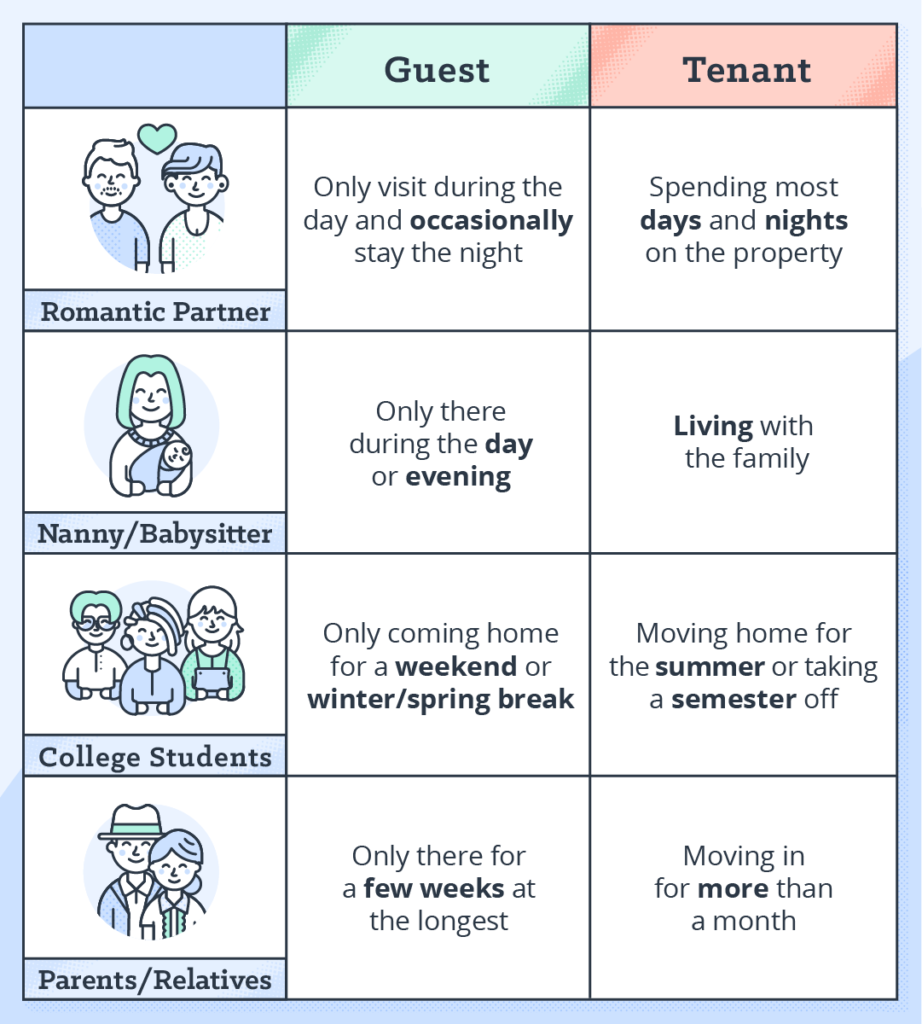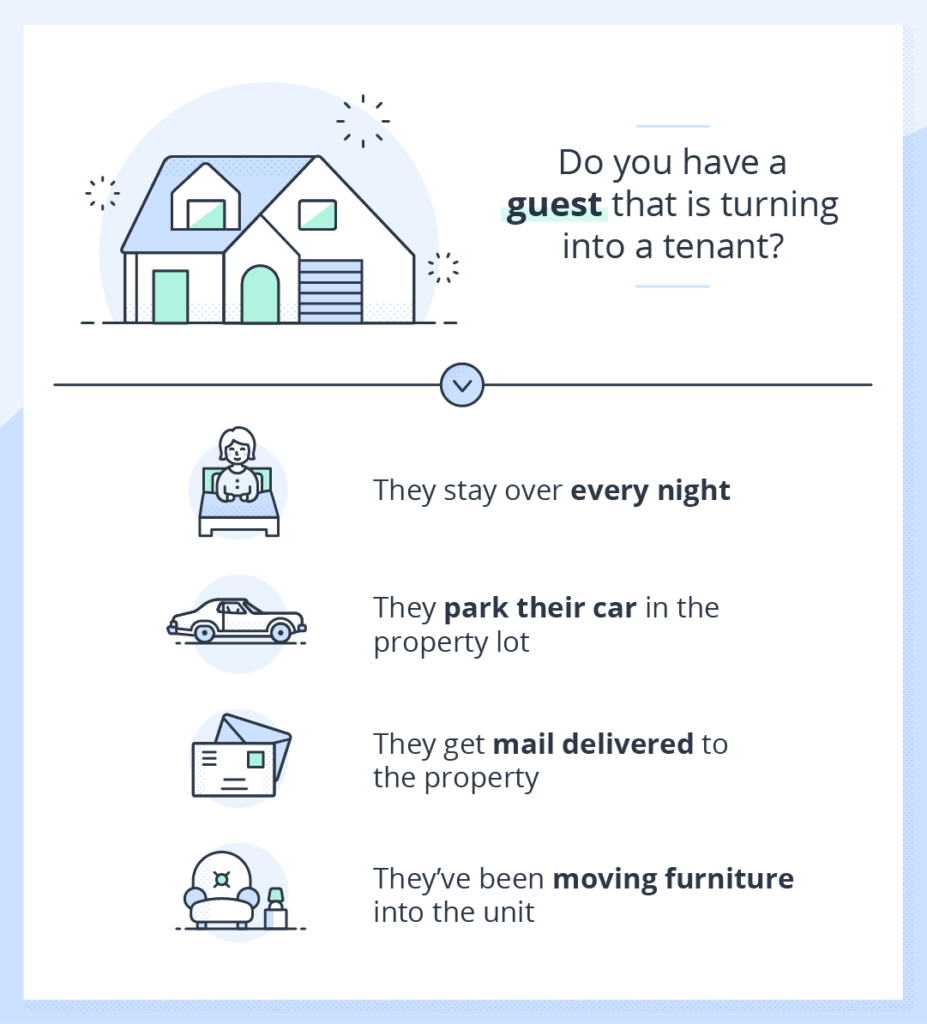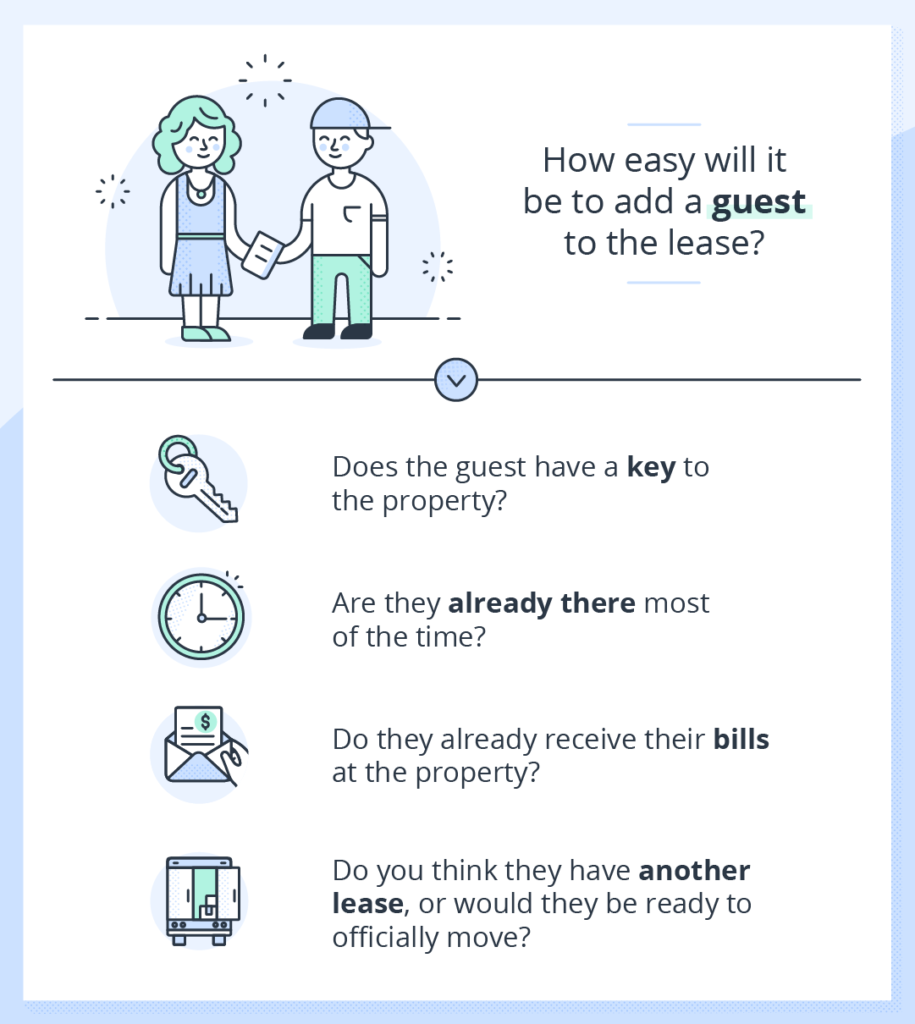8 min read
Blame Landlords Less and Property Managers More
Scroll through the news, and you’ll find no shortage of horror stories about landlords. But in three recent cases involving unlawfully withheld...

Tenants will have people coming and going from their place at many different times throughout their lease. However, determining whether a new face on your property is a short-term guest or one who is overstaying their welcome can be a tricky situation.
Tenants are absolutely allowed to have guests, whether it’s friends from home visiting, a sibling or even a significant other – there are tenant rights regarding guests according to the covenant of quiet enjoyment. Yet, this doesn’t mean guests are allowed to stay for an indefinite amount of time – crashing on the couch can turn to a full-time roommate pretty quickly. So when does a guest become a tenant? Here is everything you need to break it down
Set up customizable lease agreements right in your TurboTenant account! Purchase a single lease agreement on subscribe and receive unlimited lease agreements, plus electronic signatures and landlord forms.
Set up customizable lease agreements right in your TurboTenant account! Purchase a single lease agreement on subscribe and receive unlimited lease agreements, plus electronic signatures and landlord forms.
This definition should seem pretty obvious to most people, but an actual tenant is someone who is on the lease – they pay rent every month to live in the specific rental property. Therefore, a guest means someone who is not on the lease but is just visiting for a few days or so – there is no binding contract for guests, just tenants.


This can and should be laid out in the lease and specified to the tenant. Depending on how lenient you want to be as a landlord, anywhere from 10-14 days is usually acceptable. Having your tenant sign their initials next to this detail in your lease will ensure there was proper communication beforehand.

Usually, you will be able to tell if someone other than your actual tenant is living on the rental property as more than just a guest – here are some tell-tale signs:

If there are obvious signs your tenant has a permanent long-term guest, adding them to the lease will help protect you as the landlord since they will be obligated to the lease and, therefore, all the rental property rules and stipulations. If you are debating between adding the tenant guest to the lease versus asking them to clear out, ask yourself these questions:
Having to be confrontational as a landlord can be awkward and uncomfortable for both parties, but it is sometimes necessary. While it can be difficult to have the conversation, make sure to bring a copy of the lease to show them the outlined length of time you both agreed to in regards to guests. You should be understanding and courteous while also explaining policies in the lease are non-negotiable.
After you are able to talk to your tenant, it’s a good idea to confirm the long-term guest isn’t still secretly slumming. Follow through to make sure the guest either moves out or is officially added to the lease – if not, you can remind the tenant a lease violation could lead to eviction.
This is important for legal accountability – if there is a tenant living at the rental who isn’t on the lease, the landlord could be at risk, especially if an accident or something else were to happen.
No – do not accept rent from guests because, again, this puts the landlord at risk for legal issues. Only accept rent from people on the lease.
Yes, if you’ve given all the options multiple times to your tenant and they refuse to add their guest to lease or have them move out, eviction is an option as a last resort.
Overall, it is important to identify long-term guests as a landlord because they can be a liability to you and your rental property. Furthermore, if tenants are allowing long-term guests, it means they are violating their lease. Adding the guest to the lease or having them move out are the best options to ensure you are protected – make sure that each potential resident is filling out a rental application and that you are still screening them for possible red flags.
DISCLAIMER: TurboTenant, Inc does not provide legal advice. This material has been prepared for informational purposes only. All users are advised to check all applicable local, state and federal laws and consult legal counsel should questions arise.
8 min read
Scroll through the news, and you’ll find no shortage of horror stories about landlords. But in three recent cases involving unlawfully withheld...
9 min read
Like it or not, credit dictates a lot in our lives, and your tenants may want to get some recognition for their on-time...
14 min read
Staying compliant with IRS rules for rental property is a non-negotiable piece of the landlord puzzle. As we all know, Uncle Sam expects full transparency from...
Join the 750,000+ independent landlords who rely on TurboTenant to create welcoming rental experiences.
No tricks or trials to worry about. So what’s the harm? Try it today!
TurboTenant, Inc., © 2025
Created in Sunny Colorado